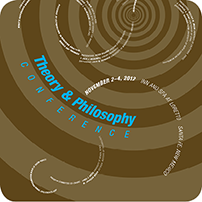Methodological Behaviorism and Private Behavioral Events as a Radical Behaviorist Views Them

Jay Moore (University of Wisconsin, Milwaukee)

Jay Moore received his master's degree from Western Michigan University in 1969, where his adviser was Dr. David Lyon. He received his Ph.D. from the University of California, San Diego in 1975, where his adviser was Dr. Edmund Fantino. Dr. Moore is on the faculty of the Department of Psychology at the University of Wisconsin-Milwaukee, where he has been since 1977. His principal professional interests are in the experimental analysis of behavior and the theoretical-philosophical-conceptual analysis of behavior. He is the author of Conceptual Foundations of Radical Behaviorism. Dr. Moore has been a member of ABAI since 1977 and has served as editor of The Behavior Analyst, coordinator for ABAI's Accreditation and Professional Standards Board, and on the ABAI Executive Council-including a term as president.
Abstract: Methodological behaviorism is the name for a prescriptive orientation to psychological science. The principal feature of methodological behaviorism concerns verbal processes and the meaning of "psychological" terms and concepts. According to this feature, the only psychological terms that psychologists should deploy in their theories and explanations are those that are based on observable stimuli and behavior. Throughout the years, the phrase "based on" has been interpreted in at least three different ways. One interpretation required psychologists to remain formally silent on causal mental terms. A second allowed psychologists to appeal indirectly to causal mental terms, but required that they logically connect the terms to observables through exhaustive operational definitions. A third allowed psychologists to appeal indirectly to causal mental terms, but required that they logically connect the terms to observables through partial operational definitions. We conclude that methodological behaviorism is more closely tied to mentalism than to the radical behaviorism of B. F. Skinner.